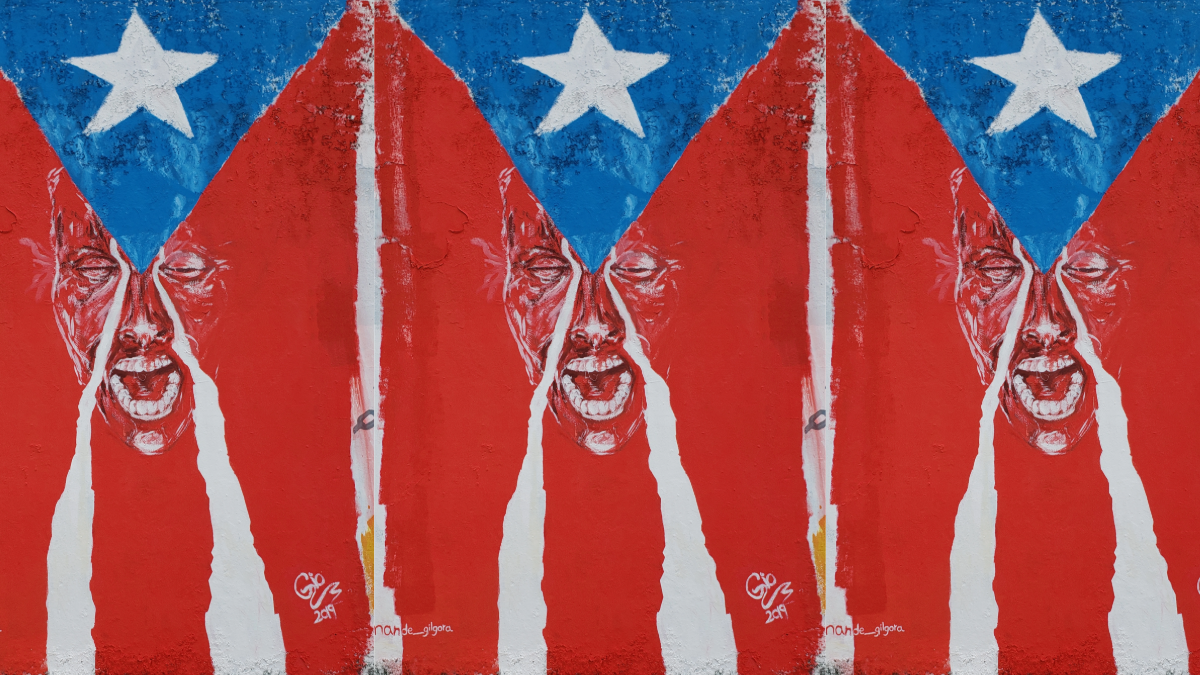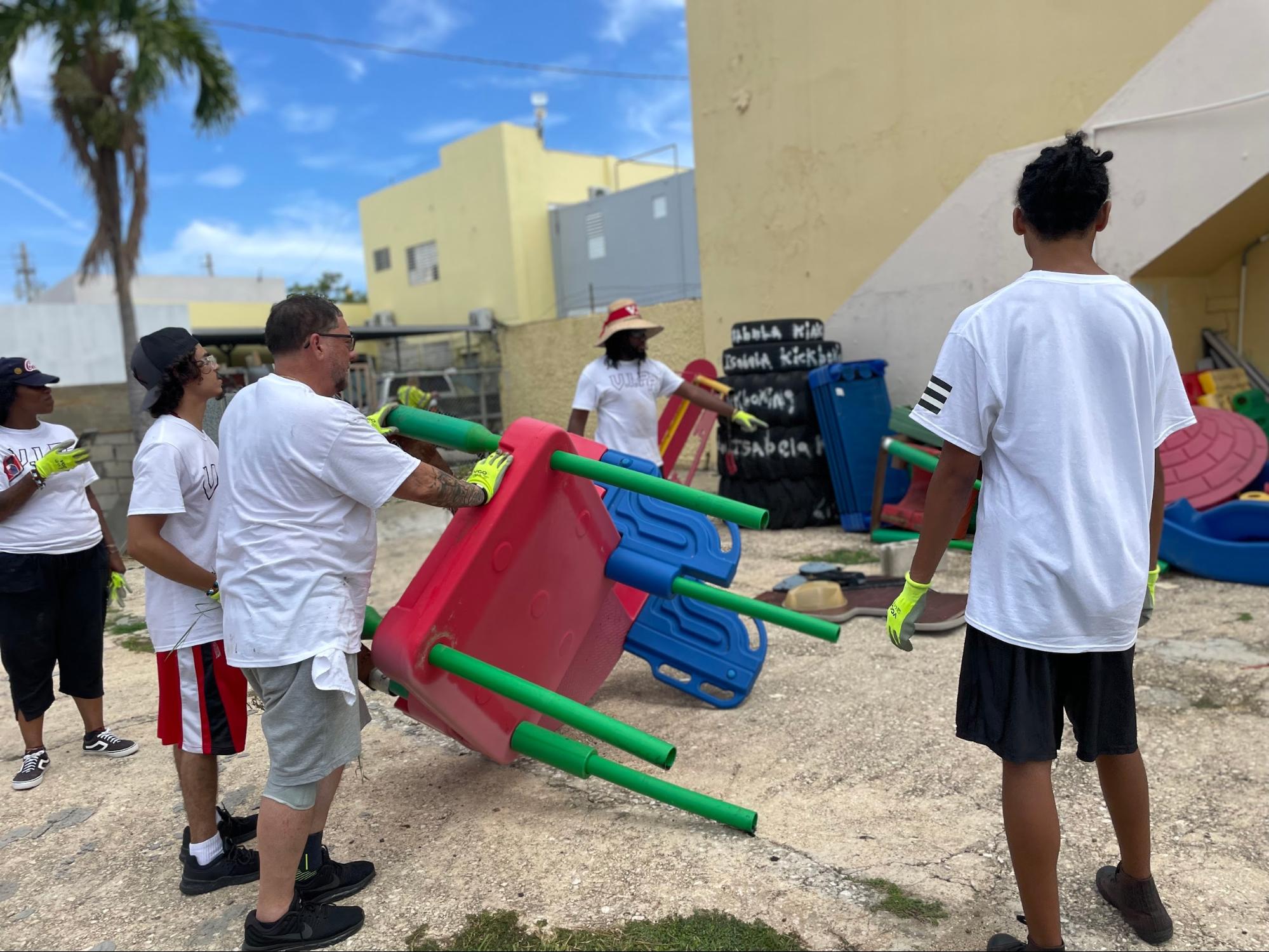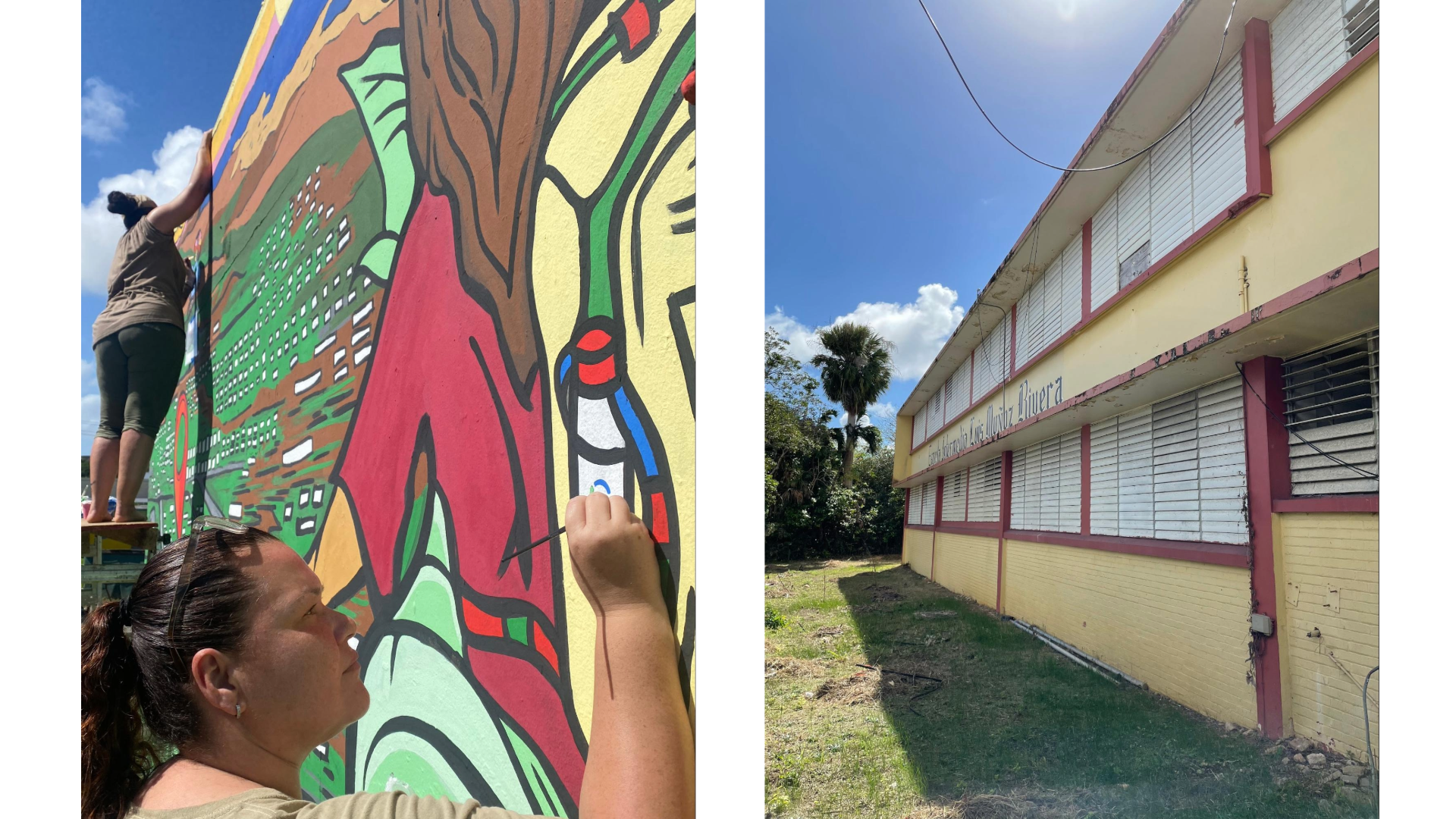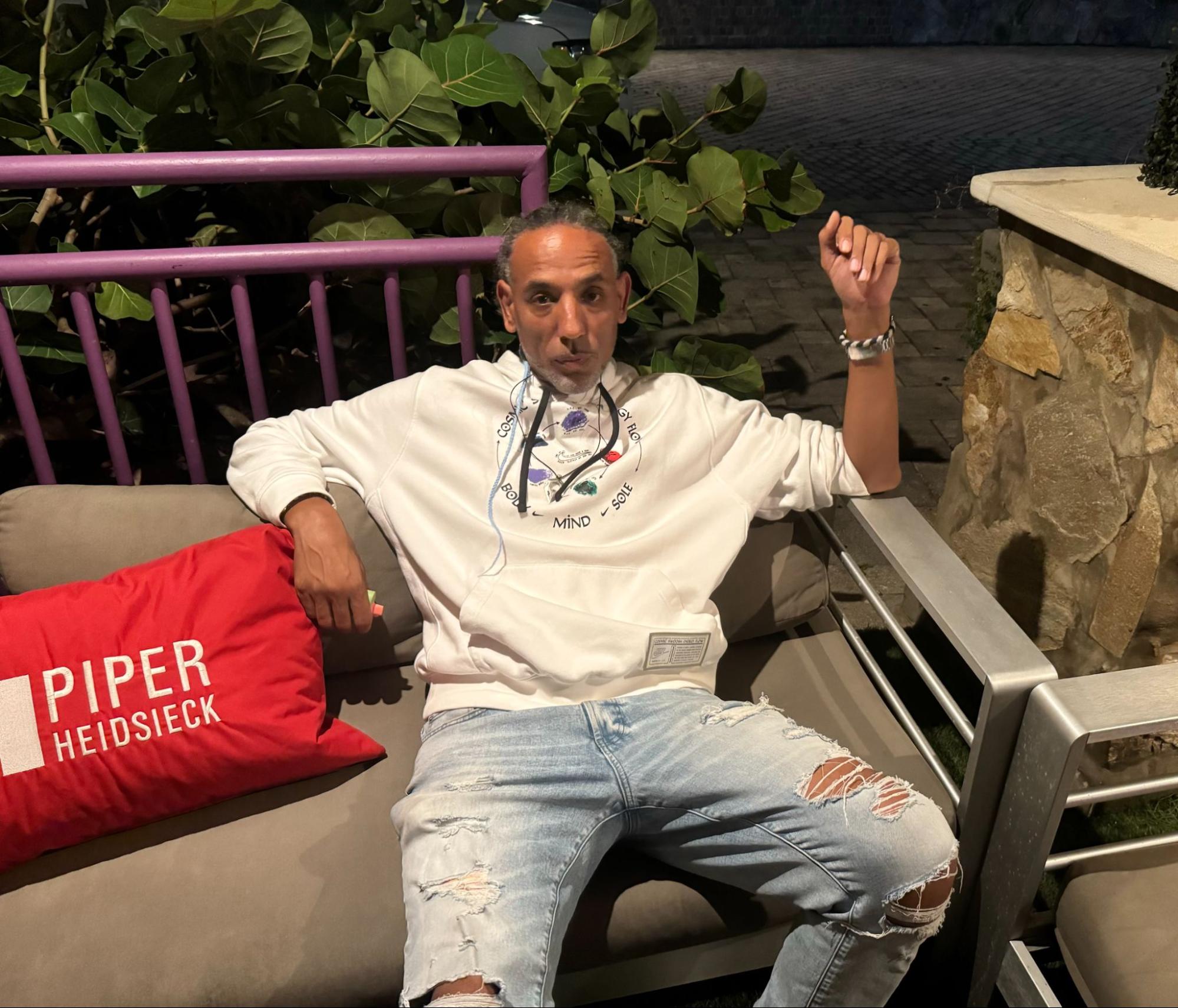Puerto Rico’s Crypto Community Enjoys a Tax Haven, But Does Puerto Rico Benefit?
Haajrah Gilani, Anastasia Mason / Apr 18, 2024
Street art in San Juan, 2019.
In an upscale bar covered in fake flowers and neon signs that read “DTF - Down to Fiesta,” a group of mostly white, millennial-aged men gathered in February 2024 for an event called ‘Crypto Mondays San Juan.’ Their aspiration: making millions in ‘tax haven’ Puerto Rico.
Pedro Rivera, who refers to himself as “Blockchain Pedro,” regularly runs these events, conducted in English, out of San Juan’s tourist hub. Guests typically include dozens of transplants, many of whom likely benefit from extensive tax breaks under Puerto Rico’s Act 60. The 2012 law provides full tax exemptions to mainland Americans who move to Puerto Rico on any capital gains earned while living on the island and meet certain income requirements.
Many Puerto Rican locals and some members of the United States Congress, however, believe the Act has transformed the island into a tax haven for wealthy people. While crypto enthusiasts aren’t the only ones lured to the island for these tax breaks, their reputation as rowdy high rollers stands out among other beneficiaries of Act 60. They are often blamed for complicating life in Puerto Rico by increasing housing prices and driving out longtime locals.
Several congressional Democrats want the federal government to ensure the beneficiaries of Act 60 are qualified to receive the tax breaks and aren’t abusing the law. Leading this effort is Rep. Nydia Velázquez (D-NY), who told Tech Policy Press that she is currently applying pressure to the Internal Revenue Service for more oversight.
“There is a lot of frustration. Decent housing for working families have become a luxury,” Rep. Velázquez said. “Thousands of young people have had to put their plans on hold because buying or renting a home is nearly impossible—and this is not only in San Juan.”
In November 2023, Rep. Velázquez wrote a letter to the IRS, signed by 12 other Democratic congress members, asking the federal agency to share any findings from its ongoing investigation, launched in 2021, into Act 60 beneficiaries who may be exploiting the law. When Tech Policy Press spoke with Rep. Velázquez, the IRS had so far refused to share any concrete public updates while the investigation is underway.
Act 60 Benefits Puerto Rico’s Elites
Jose Atiles, assistant professor of sociology at the University of Illinois at Urbana-Champaign and a Puerto Rico native, has spent more than a decade researching the social and legal design of US colonialism in Puerto Rico. Much of his recent work focuses on cryptocurrency’s role in creating tax havens and the way locals resist them through community organizing. Atiles said it’s difficult to predict what the government might do to mitigate the harm of Act 60 – if it does anything at all.
Puerto Rico’s two dominant parties, the Partido Nuevo Progresista (PNP) and the Partido Popular Democratico (PPD), both benefit from funding and donations provided by Act 60 beneficiaries, including the crypto community. This relationship between the government and the Act 60 community makes policy change unlikely, Atiles said.
While Puerto Rico’s capital, San Juan, has often played host to the crypto community, its members have been moving throughout the island in recent years.
When Raymond Collazo and Carmen Santiago realized housing was becoming unaffordable for longtime residents in their town, Isabela, they sought out a solution. In 2022, the two founded Mi Patria, a nonprofit that works with displaced communities by rehabilitating houses and schools and providing disaster relief.
Mi Patria is currently working to reopen a school building that was sold to investors, then later abandoned, according to the nonprofit’s founders.

Volunteers move playground equipment outside an abandoned school in Isabela, Puerto Rico. Courtesy of Mi Patria.
“If they [crypto entrepreneurs] start investing, they start taking up properties, putting Airbnbs up, or just leaving properties abandoned, which is also another problem,” Santiago told Tech Policy Press via Zoom while at the construction site. “It creates a housing crisis, it creates problems where communities are being destroyed.”
Collazo, also on the call, said Act 60 needs to be reworked by the government because its current state is causing more harm than good.
“Act 60 can be abolished, and something new can be created, where they're [beneficiaries] being taxed, and they're helping other nonprofits at a healthy rate,” he said.

Carmen Santiago paints on the school’s wall, left. The outside of Escuela Luis Munoz Rivera, right. After renovations, the school will serve as a community disaster relief center. Courtesy of Mi Patria.
Crypto Entrepreneurs Believe Their Impact is Positive
Meanwhile, the crypto community maintains that it helps Puerto Rico’s economy. Rivera, or ‘Blockchain Pedro,’ said he uses his crypto influence for “charitable efforts,” such as working with nonprofits like the Boys & Girls Club of Puerto Rico or volunteering at children’s hospitals. He said that because of his Puerto Rican heritage, he wants to uplift his community.
Rivera grew up in New York, where the first Crypto Mondays began. He founded the San Juan chapter in 2018, and it continues to be the global organization’s largest chapter. He describes the group as a nonprofit that hosts weekly social and educational events for the crypto community.
Rivera said the San Juan chapter draws large crowds because people are drawn to his anti-corporate, relaxed style. He said his work, which includes giving “free” crypto advice to packed bars, helps improve Puerto Rico’s economy.
Rivera said he encourages his crypto colleagues to donate to certain charities he recommends. All Act 60 beneficiaries must make a $10,000 nonprofit charitable contribution to maintain their tax breaks.
Critics of Puerto Rico’s crypto community disagree that the outsiders are helping Puerto Rico’s economy. Collazo, one of Mi Patria’s founders, said that the $10,000 donations are small in comparison to the community’s earnings.
Collazo said it’s a possibility that many of the Act 60 recipients keep their donations within one circle.
“What happens is, ‘Hey, I know you have a nonprofit, my friend has his own nonprofit, it's not my legal entity, so, I could just throw this to you,’” he added.
The IRS investigation that congressional democrats sought more information on is rooted in similar suspicions.
While the findings of this investigation are not yet known, the agency laid out its mission in July last year. In an IRS press release that announced its plans to pursue high-income tax evaders, the agency said it “recently identified about 100 high-income individuals claiming benefits in Puerto Rico without meeting the residence and source rules involving U.S. possessions.” The IRS also expects “wealthy individuals” to be criminally investigated.
When Tech Policy Press spoke with Rivera, in February, he said he had just applied for nonprofit status for Crypto Mondays San Juan. The group isn’t listed on the IRS’ registered nonprofit database as of the date of this publication.
Rivera understands some of the criticism towards the crypto community, like it being unfair that Puerto Ricans cannot directly benefit from the tax exemptions.
He’s also aware that because of his mainland upbringing, he may not fully understand the intricacies of longtime residents’ experiences. He said he has been singled out at protests against Act 60. But he believes those demonstrators don’t necessarily represent the majority of the Puerto Rican people, and he still feels connected to the community.

Pedro Rivera, or “Blockchain Pedro,” the leader of Crypto Monday’s San Juan, mingles outside a Crypto Mondays San Juan event. (Anastasia Mason)
Another active member of Puerto Rico’s crypto community is Luke Stokes. A friend of Rivera’s, he serves as managing director for the Foundation for Interwallet Operability, a service that combines users’ various crypto wallets and domains into one united profile. He said he moved his entire family to the island in 2018 after abandoning his original plan to renounce his American citizenship over disapproval of how his tax dollars were being spent.
For Stokes, crypto is a “tool for humans to interact with each other without violence.”
“You can’t confiscate it, so we can’t invade your country and steal it from you. You can’t inflate it away and fund your wars with it,” Stokes said. “It's just basically, we get to cooperate in the group without violence.”
Atiles’ research found that, despite the narrative the crypto community portrays, its presence is financially complicating Puerto Rico’s housing market. He said the community has a “white savior mentality that was really present during the aftermath of Hurricane Maria.”
“The tax impact, the economic impact, the lack of the [positive] real estate impact, the lack of real job creation and then the energy and environmental impact of this industry really contradict the savior mentality,” Atiles said.
Stokes said he and his family immersed themselves in the local culture and history through friends they’ve made in Puerto Rico over the last six years. They live in a neighborhood where Spanish is the predominant language among residents, but neither parent is fluent. The couple also homeschools their children.
Stokes and about forty other crypto enthusiasts take group trips across Latin America to meet with the governments and promote cryptocurrency. He said he has visited El Salvador, Honduras, Panama, and Saint Kitts and Nevis with his friend and trip organizer, Brock Pierce. Pierce was a child actor and 2020 presidential candidate who became a current cryptocurrency mogul.
“He [Pierce] is kind of meeting with different countries and figuring out how we can basically help freedom be more of an option, especially in Latin America because there's a lot of investment from other nation states that have maybe a different perspective on how to shape the world that is less focused on freedom,” said Stokes.
But some of Pierce’s promises appear to have fallen flat. Rep. Velázquez recalled when Pierce purchased a hotel damaged by Hurricane Maria for $18.3 million in 2021, and vowed to reopen it and create jobs for locals. But today, the billionaire is engaged in a legal battle for the hotel. It remains closed roughly three years later.
When asked about how Stokes’ organization makes efforts not to displace local communities through rising housing prices, Stokes dodged the question, instead offering up what he called a “potentially controversial, maybe even offensive” joke that he says people say in the crypto space.
“Everyone buys Bitcoin at the price they deserve,” he said.
He added that he believes people are often risk-averse or not willing to prioritize learning more about crypto. And that this limits their success.
“[The joke] sounds rough, especially coming from a guy who bought at $20, right?” Stokes said, “That sounds really insensitive.”
Authors

